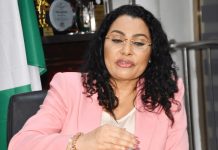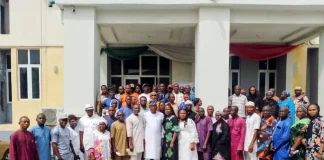The Nigerian Midstream and Downstream Petroleum Regulatory Authority (NMDPRA) awards 10 Gas Distribution Licenses (GDLs) to six companies, aimed at increasing gas usage and expanding infrastructure across Nigeria.
The licenses are issued during a ceremony in Abuja on Tuesday.
Under the Petroleum Industry Act (PIA), the GDL grants exclusive rights to establish, construct, and operate gas distribution systems within designated local Gas Distribution Zones (GDZ).
The six companies receiving the licenses are:
- NNPC Gas Marketing Company
- Shell Nigeria Gas Limited
- NIPCO Plc
- Central Horizon Gas Company
- Falcon Corporation Ltd.
- AXXELA
Farouk Ahmed, the Chief Executive of NMDPRA, states that the license recipients are selected from over 30 applicants who meet specific criteria.
“These licenses support the expansion of the ‘last mile,’ which is critical for completing an efficient and interconnected gas network nationwide,” Ahmed says.
The 10 licenses represent Phase One of the GDL initiative and are granted to operators who have made significant investments in gas distribution infrastructure and met the necessary requirements.
The newly awarded licenses support a combined gas distribution capacity of approximately 1.5 billion standard cubic feet per day (bscf/d), covering over 1,200 kilometers of gas pipeline and more than 500 customer stations.
The GDL program is designed to supply gas to energy-intensive industries, industrial parks, special economic zones, captive power generation, Compressed Natural Gas (CNG) mobility projects, and other downstream gas utilization efforts.
Ahmed explains that Piped Natural Gas (PNG) offers a continuous, cost-effective, and safer supply, eliminating storage challenges. He emphasizes that these advantages are crucial for meeting Nigeria’s growing energy demands while improving energy efficiency.
The NMDPRA will also monitor tariff rates and safety standards to ensure the efficient and transparent operation of the Gas Distribution Network.
Ahmed adds that additional licenses will be issued soon after completing the necessary regulatory reviews and ensuring compliance with the PIA provisions and the Gas Distribution Regulations 2023.
In a separate address, the Minister of State for Petroleum Resources (Gas), Ekperikpe Ekpo, highlights that these licenses improve access to clean cooking, CNG mobility, and boost power generation.
“These licenses, under the Petroleum Industry Act, unlock opportunities for cleaner energy solutions, including power generation and the expansion of clean cooking options,” Ekpo states.
He notes that under President Bola Tinubu’s Liquefied Petroleum Gas (LPG) penetration program, gas will be piped directly to homes and industrial centers across Nigeria.
“The shift from gas cylinders to piped gas for homes and businesses will significantly improve the efficiency and safety of energy use,” he adds.
Ekpo emphasizes that this initiative shows the Nigerian government’s commitment to leveraging natural gas for sustainable development.
While gas is a cleaner alternative for cooking, only about 25% of Nigerians use it. Around 150 million Nigerians still rely on biomass, particularly firewood and charcoal, which pose serious health risks due to the carbon monoxide emissions during cooking. These emissions contribute to air pollution, and respiratory issues caused by indoor air pollution are among the leading causes of death for women and children in Nigeria.













